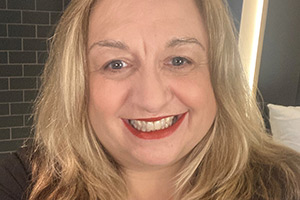
It Ain't Half Hot Mum ain't half funny
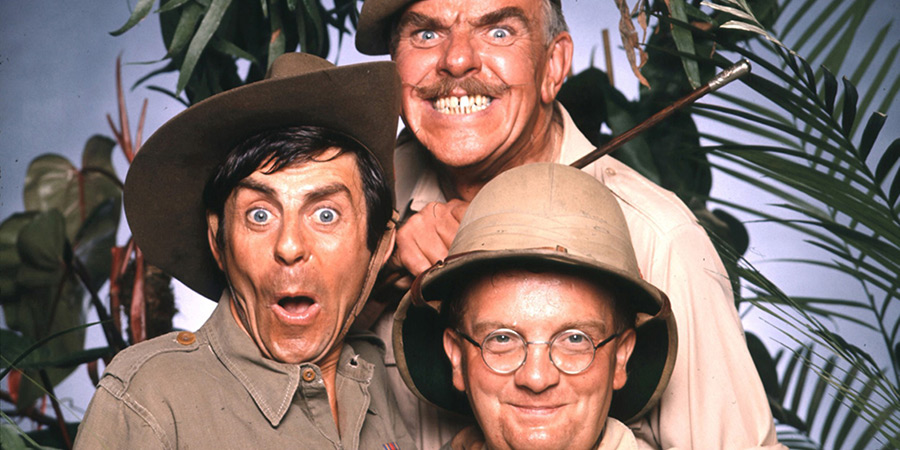
The glaring heat of the sun beats down on the small Indian village of Deolali. It is intense and relentless as the men go about their work, whitewashing stones by the veranda of the officers' mess. Sweat patches form on the back of their khaki uniforms as they mop their brows and sneak a bit of welcome relief in the shade for a break and a drink from the char wallah who promises them this is fine English tea. The punkah-wallah sits on the veranda providing a cooling breeze for the officers inside but, in reality, he is probably just blowing the stifling hot air around. The sergeant major emerges from the hut and catches the men slacking. With an ear-piercing cry of "You, 'orrible lot! Move yourselves! Move yourselves!" they leap into action, so as not to incur any more of the major's wrath. Dripping with sweat, Gunner Parkin writes in his letter home "It ain't half hot mum".
This is how the series got its name, from Parkin's letter in the very first episode, broadcast on 3rd January 1974 on BBC1.
It Ain't Half Hot Mum - which ran for 56 episodes over 8 series on the BBC, from 1974 to 1981 - was set in the last few months of the Second World War, initially in Deolali, India, a British army camp about 100 miles northeast of Bombay - as it was known then (now Mumbai) - and later in Burma, in the fictional village of Tin Min.
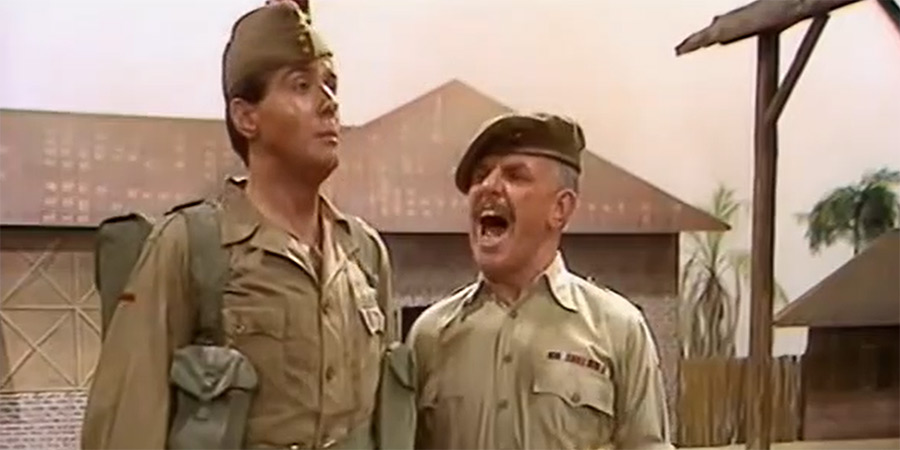
The news of VE day comes through quite early on in the series so there is a feeling that the war is coming to an end, and this was about those last few battles with the Japanese soldiers deep in the jungle and, in our heroes' case, keeping as far away as possible from doing any fighting.
These were reluctant soldiers because this band of men entertained the troops. Deolali was a holding station where units passed through on the way to and from their posts, entertainment provided before the awfulness of the jungle that awaited them.
Written by David Croft and Jimmy Perry, the show ran alongside their hugely successful sitcom Dad's Army and was their second big hit. Like Dad's Army, this drew on their personal experiences of the war. Jimmy Perry had been part of a concert party stationed in India and David Croft had been an entertainment officer in Poona, Maharashtra, so both had first-hand experience of what life was like in the far-east at that time, with plenty of stories and characters to write about.
Concert parties were a big part of the war effort with CSE (Combined Services Entertainment) and ENSA (Entertainments National Service Association) - colloquially known by the troops as Every Night Something Awful. The boys in It Ain't Half Hot Mum were part of the Royal Artillery Concert Party and, unlike ENSA concert parties, were meant to be fighting soldiers. However, their entertainment remit prevented them from being moved up to active service, a situation in which they wanted to remain. None of the ensemble were particularly keen on doing anything other than putting on shows and they certainly didn't want to face the horrors of the jungle and the Japanese snipers it housed.
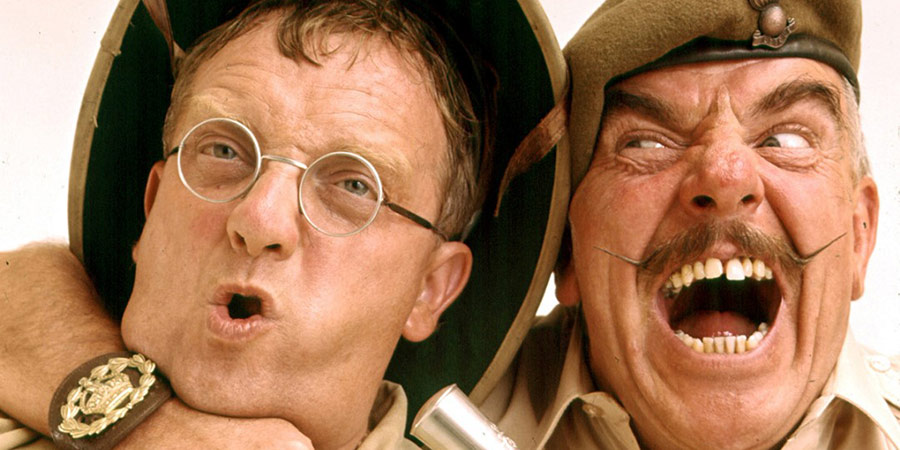
Putting a fly in the ointment of their relative comforts was Battery Sgt Major 'Shut Up' Williams, played by Welsh actor Windsor Davies, who wanted nothing more than to stop all this fooling about on stage and make real soldiers of his men. Each episode revolved around either a plot to disband the troop and station them in the jungle to fight, or a situation where they had to step up and foil an attack on the barracks, blow up a bridge or thwart the plans of local bandits.
It Ain't Half Hot Mum was an ensemble piece like all the writers' other series, but the part of the Sgt Major was a tour de force performance by Windsor Davies, making him a household name. It soon became apparent that this was the stand-out role.
Such was the popularity of the character and the show that in 1975 a version of the 1940s Ink Spots number Whispering Grass was recorded by Davies in character as Sgt Major Williams and co-star Don Estelle as Gunner 'Lofty' Sugden, who was a trained singer with a fine tenor voice. The song was a huge success and stayed at number one in the UK Single Charts for 3 weeks. An album of wartime songs and monologues from the characters was recorded at Abbey Road studios and also released in January 1975.
The part of the Sgt Major was based on an actual sergeant major who Jimmy Perry served with in India. Many of the Sgt Major's sayings and his disdain for the concert party were real, but in real life, Perry's superior didn't have the same steely and belligerent nature and was quite a sad and somewhat bitter figure who resented not just the entertainers but anyone being promoted above him or getting medals.
Jimmy Perry recalled in his 2002 autobiography A Stupid Boy: "The character we wrote for It Ain't Half Hot Mum really did exist. The only thing was he was Cockney, not Welsh. The colonel was all in favour of the concert party, but the sergeant-major hated us."
In real life as in the show, the ranks above the sergeant major were very much for keeping morale up for the men with the concert party and so the sergeant major, for all his bluff and bluster, never got his way. Colonel Charles Reynolds and Captain Jonathan Ashwood, played by Donald Hewlett and Michael Knowles respectively, were wonderful as the series' 'upper-class twits' who enjoyed a gin in the officers' mess and kept far away from any fighting. Their dynamic was that of an old married couple; Ashwood being a particular fusspot and Reynolds pulling rank whenever he could. They were a wonderful contrast to the Sgt Major and the rest of the lads and highlighted the class differences in the ranks, which was a key theme of the show.
The part of 'Shut Up' Williams could have been very different though, as Perry and Croft had originally written the character as a Cockney, like Perry's real superior. Leonard Rossiter had been sent the script and agreed to meet Croft and Perry to talk it through, but when he arrived he was very dismissive of the part. He thought there was something there but said the character was too cliched and stereotypical, which incensed Croft, who wrote in his 2004 autobiography, You Have Been Watching:
I came to the conclusion that Leonard Rossiter had a much bigger ego than I was prepared to deal with, having a pretty big ego myself. I could visualise endless rewrites to satisfy him and rewrites were not something we were anxious to undertake.
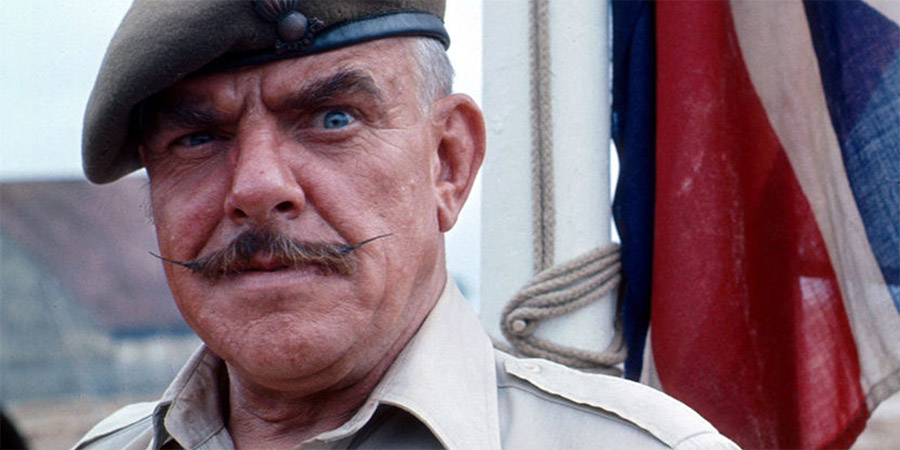
Jimmy Perry felt the same, and the show finally fell into place when Windsor Davies came to read for the part: "Windsor read the part in Cockney but it was just not right, his natural Welsh accent kept peeping through. We rewrote a few pages and when he read it in a Welsh accent the result was amazing: the whole character sprang to life."
Davies even added the famous catchphrase "lovely boy" himself and the writers were so delighted with how real he'd made the character they kept it in.
When it came to casting the other parts, they had thought of John Inman as Bombardier 'Gloria' Beaumont, the female impersonator, but he was so well established in the Croft and Lloyd sitcom Are You Being Served? that they didn't think it would work. The writers had spotted Melvyn Hayes in the 1960s Cliff Richard movies and soon cast him instead. Gloria was the lifeblood of the concert party and the only professional artiste, as he liked to remind them daily.
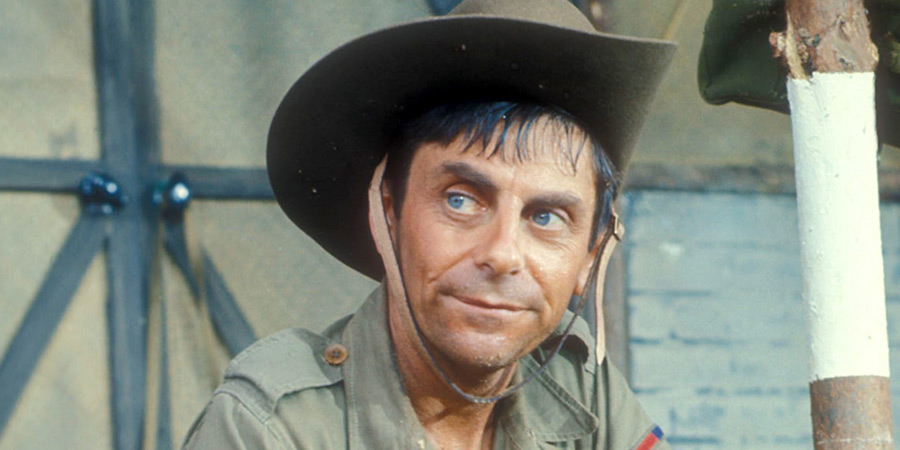
When Bombardier 'Solly' Solomons, played by George Layton, leaves, Gloria is promoted to the rank of bombardier and takes over directorial duties. Layton was a big name for the show, having already starred in and co-written for the popular ITV Doctor... sitcoms, however he left after Series 2 to pursue other projects and in frustration at not having more funny lines.
"I pleaded with him to stay, pointing out that he was the lynchpin of the whole series, but he insisted on going" Jimmy Perry wrote.
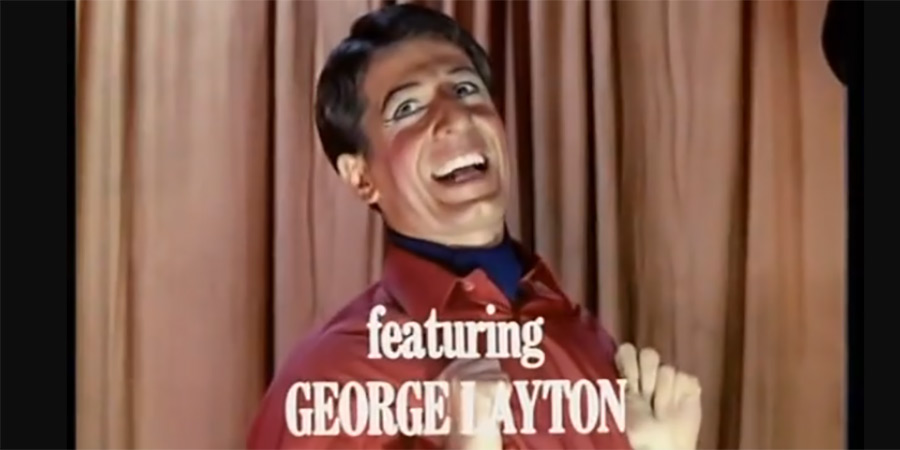
The rest of the cast consisted of various jobbing actors that Croft and Perry had seen or worked with before.
Christopher Mitchell was dim but good-looking Gunner Parkin, whom the Sgt Major thinks is his son after he sees a picture of Parkin's mum and realises it is an old sweetheart from 25 years ago.
John Clegg was university-educated pianist 'La-De-Da' Gunner Graham - sometimes referred to as "Paderewski", after the Polish pianist and politician - whose upper-class tones and manner infuriate the Sgt Major.
Stuart McGugan was Gunner 'Atlas' MacKintosh, a proud Glaswegian who makes a rather ham-fisted act out of tearing a telephone directory in half.
Mike Kinsey was the paper tearer Gunner 'Nosher' Evans, who's always eating.
And Kenneth MacDonald was bird impressionist Gunner 'Nobby' Clark.
Then, of course, there were the Indian characters, around whom controversy now lies and means that the series is rarely if ever repeated on television.
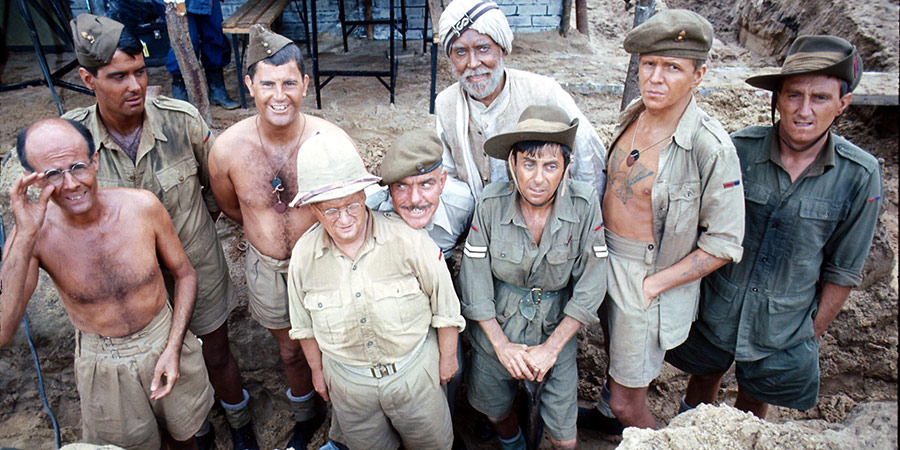
To understand the matter we must go back to the show's origins in 1973, when there were very few Asian actors working regularly in British film, TV or theatre. Where possible Croft and Perry cast Indian actors in supporting roles, such as Babar Bhatti as Punka Wallah Rumzan and Dino Shafeek as Char Wallah Muhammed (and later, Singaporean Andy Ho as Ah Syn), and helped break ground in doing so, but one of the major comic roles was Bearer Rangi Ram. That part was given to the Indian-born white actor Michael Bates, meaning he had to 'brown up' - something sadly not uncommon at the time. Croft and Perry gave this casting as much due diligence as was possible, but there simply was not a well enough established or experienced Indian actor available, as David Croft explained:
There were no shows that employed Indian actors. There was no fundamental background of shows in which they could learn the trade. There was no one who could deal with a leading comedy part. Jimmy knew Michael Bates, who had been born in India, served with the Gurkhas during the war and spoke the language. He had more or less been raised by a bearer like Randi.
Both Croft and Perry wrote, in their respective early-2000s autobiographies, that if they were making the sitcom contemporarily, they would of course cast an Asian actor in the role. Instead they took as much care as they could casting Michael Bates, who spoke Urdu and knew and respected the culture and people he was representing.
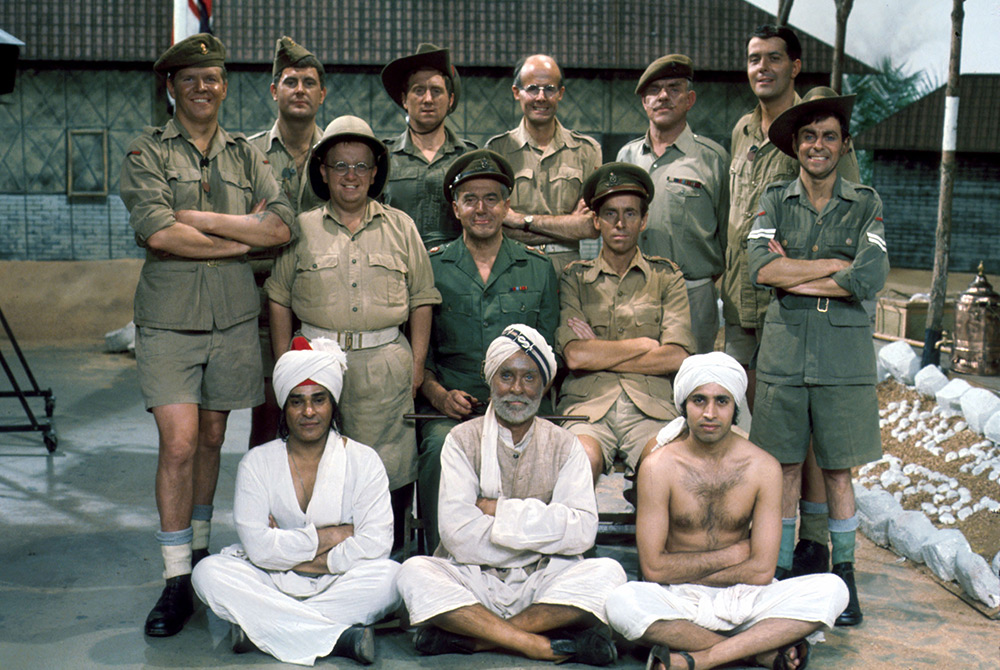
By Series 5, the location had moved to Burma and Bates was very ill with cancer and in a lot of pain. Dizziness prevented him from taking painkillers during the show but he would be ready to gulp them down with water as soon as his shots were finished. The crew had to use a body double for long shots where the character had to run around.
"When he contracted cancer during the series he refused to let it interfere with his work and survived for two more years, managing between bouts in hospital, to make two more series. He was one of the bravest men I've ever known," said Jimmy Perry.
Michael Bates died on 11th January 1978 aged just 57. It Ain't Half Hot Mum would continue for another three series.
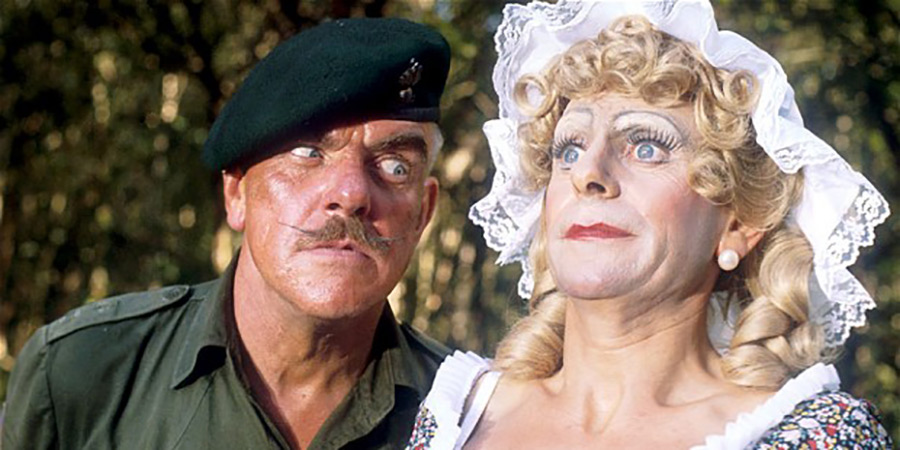
The series has also attracted negative commentary for its depiction of effeminate characters, notably female impersonator Bombardier Beaumont being referred to as 'Gloria', and the language used by Sgt Major Williams, regularly branding his charges "a bunch of poofs". The viewer is never left in any doubt that he is the fool - in many ways he's a classic sitcom monster, intolerant and unliked by the hero ensemble. Again, this is rooted in absolute truth and accurately reflects life in the army in the period, as Jimmy Perry explained when talking about the major he based the character on:
'You are a bunch of poofs' was his regular saying, 'No man who puts on make-up and ponces about on a stage is normal - what are you?' 'A bunch of poofs!' we'd reply.
The first episode, Meet The Gang, is much darker in tone than the show eventually became. The laughs are there but not the silliness and comic capers that became a trademark of later series. You could feel the heat, the oppression and the sheer desperation of these men stuck in the middle of the jungle, miles from home, frightened and ill-prepared for war; conscripted into a fight they had no stomach for.
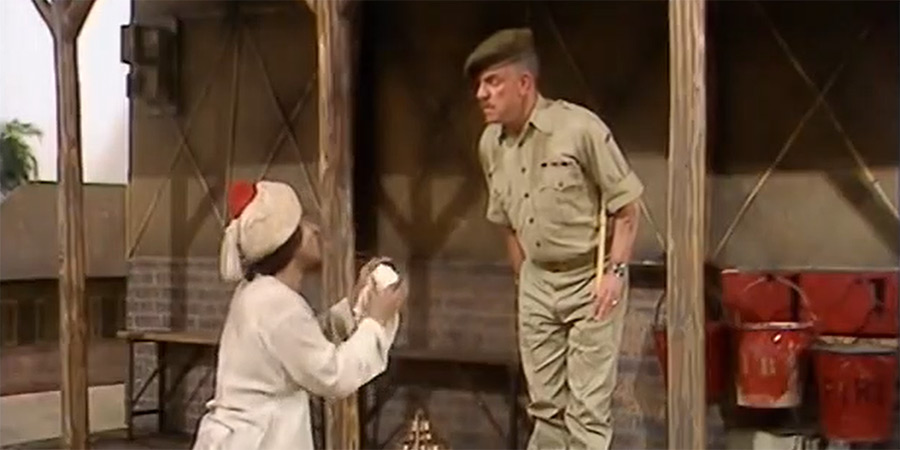
If this had been written as a comedy drama, would the perceived homophobia and racism have been tolerated more? It's essentially a show about class: class in society, ranks in the army, the Indian caste system and the demise of British rule in India, and what that meant for the future of the UK. It's a comedy but it has an awful lot to say about the history of our country and where we are now, as Jimmy Perry explains in A Stupid Boy:
What David and I were trying to do was to explain why we had so many Asians living in the UK and how we became a multiracial society; it was the effect of the aftermath of Empire. But when people started to dismiss the show as racist it filled me with despair.
As the series progressed the storylines and comedy became broader. Don't Take The Mickey in Series 3 is a typically raucous caper: the Sgt Major tries to persuade Gunner Graham to take a posting as a sergeant, hoping that without a piano player the concert party would disband. When the other boys hear of this, they arrange for a 'Mickey Finn' to be put in Gummer Graham's drink so he is charged with drunk and disorderly behaviour and can't take the commission, but the drink ends up being taken by old Shut Up instead. Another example is from Series 5, in The Superstar, when Jeffrey Holland appears as a multi-talented performer who can sing, dance, do ventriloquism, play the piano and do a female impersonation act all better than the established party, much to their disgust.

David Croft never felt the show was quite the same after Michael Bates had died, but it did mean an increased role for Bangladeshi-born actor Dino Shafeek, whose role as Char Wallah Muhammad became more prominent. Whilst starring in It Ain't Half Hot Mum on BBC1 he also had a leading role in the ITV sitcom Mind Your Language from 1977 - 1979 as Ali Nadim. For a Bangladeshi-British actor to play major parts in two popular comedies on UK TV at the same time was ground-breaking and paved the way for many more parts to be cast authentically.
Shafeek also played a pivotal role in the last two episodes of Series 8, which draws everything to a close. These two programmes contain some of the most poignant of Croft and Perry's writing. The war in Europe and the Far East is now over and the gang are getting ready to be demobbed but the Sgt Major insists they carry themselves as soldiers right to the very end.
In The Long Road Home (Series 8, Episode 6) the gang is packing up and leaving for the boat home, but when the cholera vaccine runs out, it seems poor old Lofty is going to have to stay behind until he can get his jabs. The vaccine turns up eventually but the rest of the gang have left before he can join them, and Muhammad has yet to return from the village with an assortment of brightly coloured packages, all gifts for his beloved friends. What follows is a mad dash to get to the dock in time: for both the Jeep and its dodgy fan belt, containing the gang; and Lofty and the Char Wallah in a variety of vehicles, trying to catch them up. Lofty makes it just in time but Muhammad stands on the dock with the gifts undelivered as the ship sails away. He gives a heart-breaking speech about how much they have all meant to him, what an honour it has been to serve them and how one day he longs to come to dear old Blighty and see them all again. The men look on, ashen-faced, as they realise what they are leaving behind and how better they could have treated him.
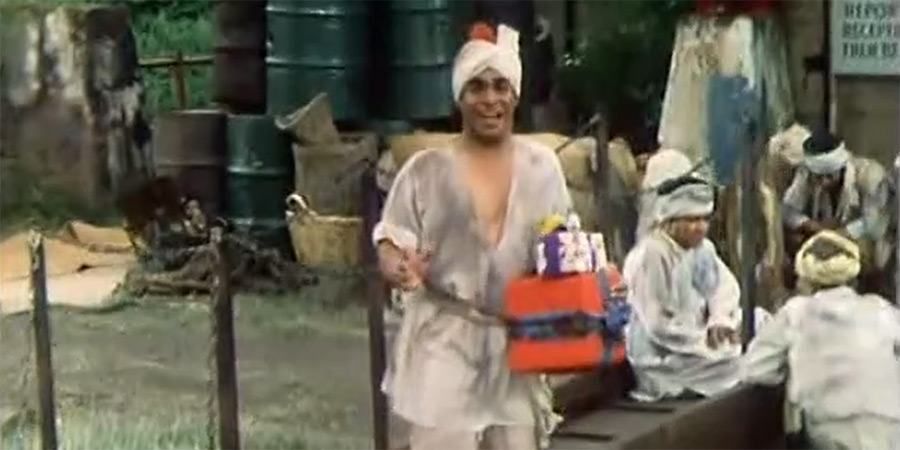
Then in the finale episode, The Last Roll Call (Series 8, Episode 7), there is some beautiful acting from Windsor Davies and that wonderful pathos that only Croft and Perry can bring to their sitcoms. They did it with Dad's Army and with Hi-De-Hi! and once again with It Ain't Half Hot Mum: they have you laughing and then bring a tear to your eye at the very end.
It sees the concert party safely back in England but awaiting 24 hours in an army barracks before they can be demobbed. They have got lost in the fog whilst disembarking the ship, the Sgt Major has fallen into the sea and to top it all they have been put through the indignities of going through customs. After one last brutal round of square bashing, they are finally going home. The gang look lost and frightened after years in the army; in ill-fitting demob suits and trilby hats, no one seems to care that they have been out in the blazing heat fighting for King and country. When the colonel and the captain are offered caps they are disgusted to find they are flat working men's caps, not those of a country squire.
"The world is changing, Ashford" remarks the Colonel - and in that one line we see how life will never be the same again for any of our heroes.
As if to continue their indignity, the woman behind the bar at the railway buffet won't serve the Captain and the Colonel gin and tonics as 'there are no spirits until after 7pm'. In one short conversation their cosy way of life is over. The men should be excited but they look scared to death. There is an awkward exchange as they all stand around in the buffet waiting for the train to leave, making small talk as the Colonel asks them where they are all headed to and what they are going to do now. Out of uniform and in civvies, it's as if they don't know each other or how to behave. The ranks and titles are gone. Every man is equal and it floors them.
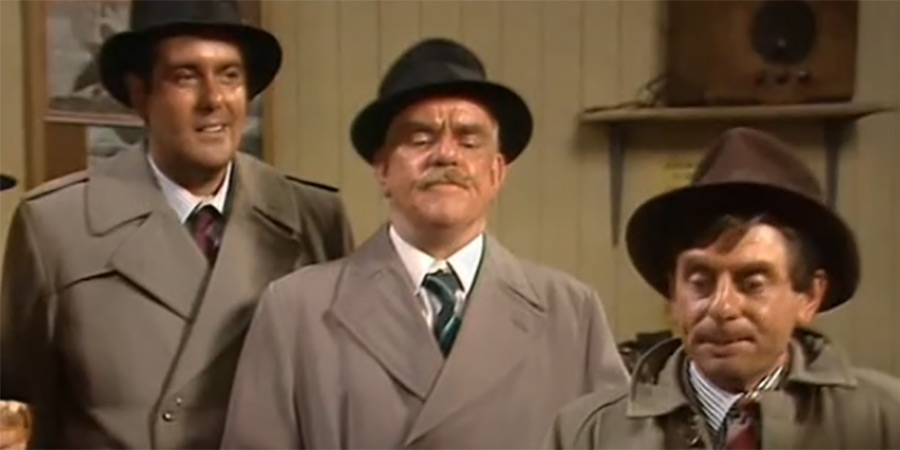
And where are they off to? Gloria has been signed up by his agent to understudy Wishy Washy in a pantomime; Graham is seeking academic life again in Cambridge; MacKintosh is off to the shipyard for work; Nobby is going to do nothing for a couple of weeks then find a job, of which Nosher says there's plenty about; and Parkin doesn't think he'll take too long to get fixed up either.
Williams, meanwhile, is off to be a prison officer, but at the last moment informs the boys there's been a hold-up with his new job and he might just find digs near the railway station and hang around there. They all know but don't say it - he didn't get the job. Parkin goes back to find him and he confesses that he was turned down for being too old. He's the one who looks the most lost. No longer a major, his life has been the army and discipline and now he can't shout, he can't boss people around, he has no authority and seemingly no future. There is a beautiful scene as Parkin offers him a lifeline to come and stay with him and his mum until he gets fixed up. Windsor Davies plays it as so grateful yet so proud. As they jump on the train we hear that iconic theme tune, co-written by Jimmy Perry, one last time. "Meet the gang 'cos the boys are here, the boys to entertain you..."
There is however a wonderful postscript after the credits when we see Char Wallah Muhammad writing to the lads back in England and saying how he will be leaving Burma in six weeks for a passage to the UK to open a restaurant in Bradford. There was a new world order after the war, and this was the start of it.
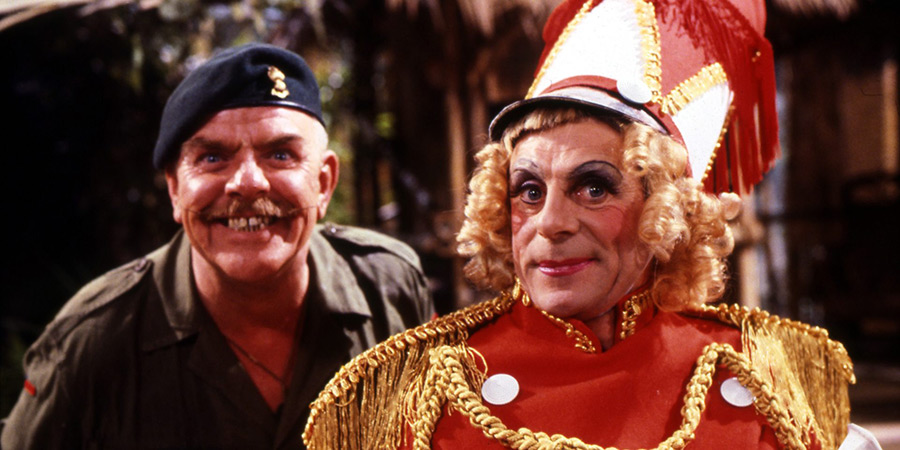
Jimmy Perry and David Croft have both said they consider It Ain't Half Hot Mum their favourite and funniest work. Around 17 million people each week between 1974 and 1981 agreed; viewing figures programme makers could only dream of now.
David Croft summed it up perfectly in You Have Been Watching:
It Ain't Half Hot Mum covered a very important part of our imperial history - a period not touched on by any other programme. Our show wasn't just a funny programme. It was founded in truth and deserves a place among our classic comedies.
Where to start?
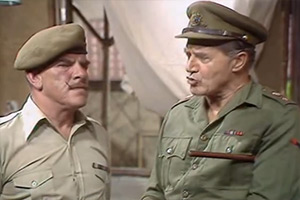
Series 3, Episode 1 - The Supremo Show
Bombardier Solly, the concert party's director and compere has been demobbed back to Blighty, having served three years in the regiment. With the company's fate in the balance, Sgt Major Shut Up Williams takes advantage of the Colonel and Captain being in quarantine and puts in a request to move the lads up to the jungle. But the Supremo is coming so the show must go on.
Help us publish more great content by becoming a BCG Supporter. You'll be backing our mission to champion, celebrate and promote British comedy in all its forms: past, present and future.
We understand times are tough, but if you believe in the power of laughter we'd be honoured to have you join us. Advertising doesn't cover our costs, so every single donation matters and is put to good use. Thank you.
Love comedy? Find out moreIt Ain't Half Hot Mum - Complete Collection

All the episodes of Jimmy Perry and David Croft's It Ain't Half Hot Mum, first broadcast in 1974. The series follows the exploits of a Royal Artillery Concert Party during the Second World War. Created by David Croft and Jimmy Perry, it seemed a natural follow-up to their smash hit Dad's Army. Another ensemble piece, it drew on both writers' wartime experience in India and set the action in Deolali: a British army camp 100 miles north-east of Bombay where everyone's gone "a bit doolally".
The concert party is a rag-tag collection of soldiers who'd rather sing, dance and drag up to entertain the troops than be sent forward to the front line. Characters include effeminate drag artist Gunner 'Gloria' Beaumont (Melvyn Hayes); the diminutive Gunner 'Lofty' Willie Sugden (Don Estelle) who possesses a hauntingly beautiful singing voice and ineffectual Colonel Reynolds (Donald Hewlett). However, the show's stand-out personality is the bombastic, eye-rolling Battery Sergeant Major Williams (Windsor Davies).
Series 1, Episodes 4 and 6 are missing from BBC archives and included in their only surviving format, of off-air recordings from Australian television broadcasts. Each episode has had around four minutes cut to make space for the broadcaster's advert break.
First released: Monday 4th October 2010
- Distributor: 2 Entertain
- Region: 2 & 4
- Discs: 9
- Minutes: 1,647
- Subtitles: English
- Catalogue: BBCDVD3329
![]() Buy and sell old and new items
Buy and sell old and new items
Search for this product on eBay
BCG may earn commission on sales generated through the links above.

